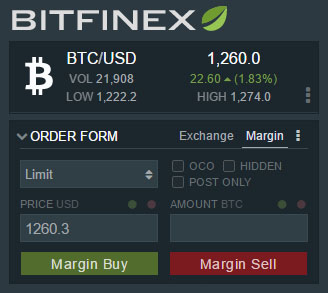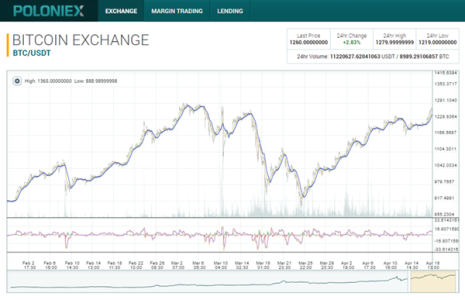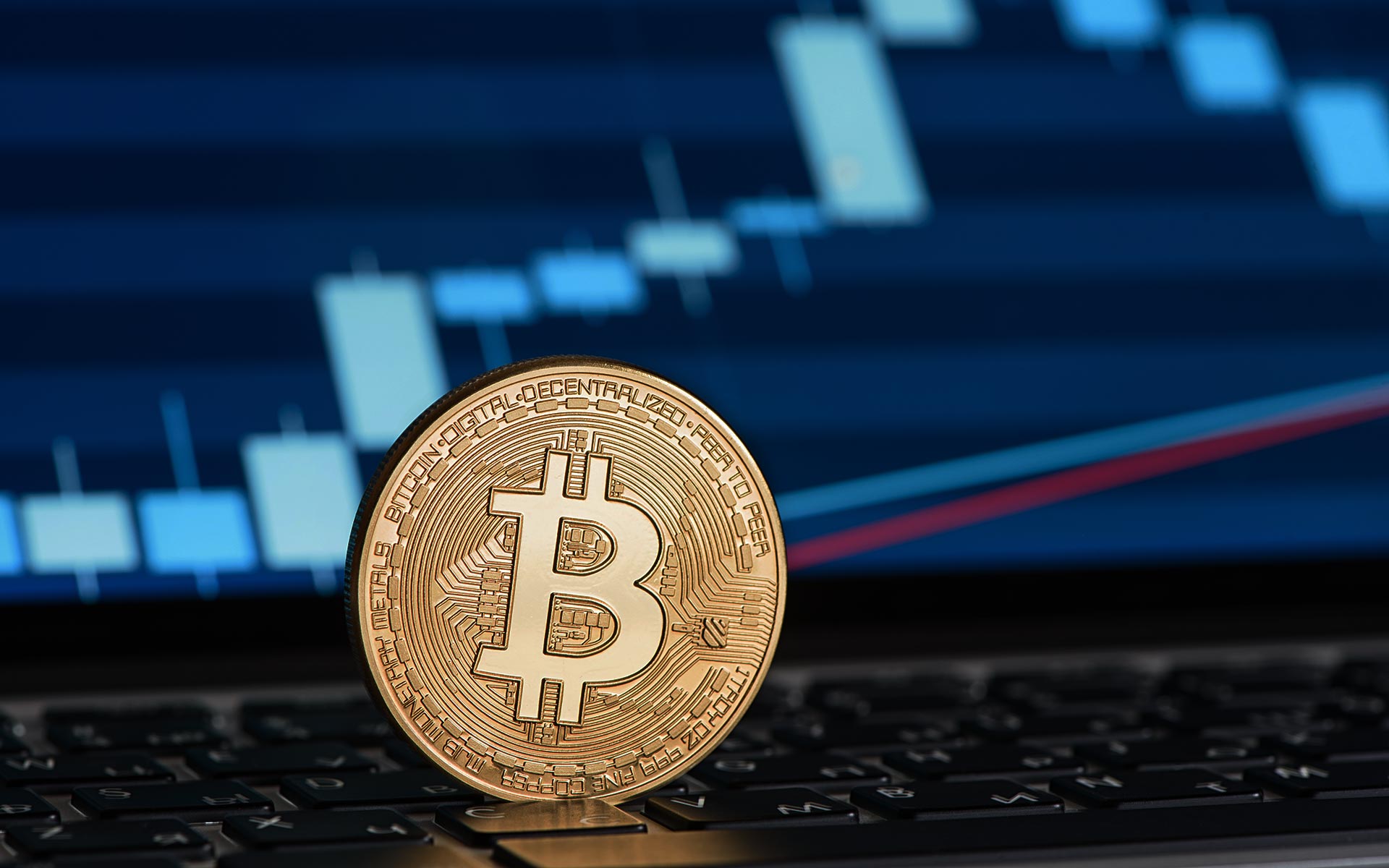
While Bitcoin tends to have slight price premiums and discounts in different currency markets like the CNY or INR, some exchanges are now trading Bitcoin with a considerable premium. Bitcoinist explains why.
Bitfinex and Poloniex Price Premium
A quick look at the Bitcoin prices from all exchanges in the field and one will notice a small anomaly. Both Bitfinex and Poloniex are trading Bitcoin with a +$50 premium on the USDT market. While most exchanges currently have an exchange rate of 1 BTC/ 1,200 USD, both Poloniex and Bitfinex are trading at roughly 1 BTC/ 1,260 USD.
https://twitter.com/bambouclub/status/854215037271101440
This premium is due to the difficulty experienced in withdrawing fiat currency from these exchanges, in this case, the U.S.Dollar. While Bitfinex seems to be experiencing problems on the fiat side due to recent complications with partner banks, there also seem to be some problems with liquidating the USDT cryptocurrency token that replaces the USD currency on the Poloniex exchange.
It turns out, however, that both exchanges are being affected by the same problem: Wells Fargo.

Bitfinex
Last week, Bitfinex published a blog post regarding delays in processing USD withdrawals. Although Bitfinex doesn’t state what the exact problem is, the situation is believed to be connected with the problems experienced with the Wells Fargo bank which stopped processing transfers from the Taiwanese banks used by Bitfinex. Since then, Bitfinex has decided to file a lawsuit against the bank and is seeking a preliminary injunction as well as damages of more than $75,000. The announcement reads:
Bitfinex is currently experiencing delays in the processing of outbound USD wires to customers. The normal channels that we have been operating through in the past are currently unavailable. Alternative channels are being opened to solve these transmission delays; however, the complexity and scale involved mean that it is taking some time to return to normal withdrawal velocities. Consequently, customers requesting USD wires should expect delays as we work to normalize the withdrawal process. USD deposits remain unaffected.
However, since then, the situation has escalated and despite the reference made by Bitfinex to the USD deposits remaining unaffected, a new announcement was posted yesterday, stating that USD deposits are being blocked. The new statement enforces the notion that the problems are indeed due to the complications with Well Fargo and Bitfinex’s Taiwanese banks. The announcement reads:
Beginning April 18, 2017, all incoming wires to Bitfinex will be blocked and refused by our Taiwan banks. This applies to all fiat currencies at the present time. Accordingly, we ask customers to avoid sending incoming wires to us until further notice, effective immediately.
As users struggle to withdraw USD, those that are not willing to wait for the operations to return to normal may be pushing the price upward as they buy Bitcoin in an attempt to move funds out of the exchange and liquidate them elsewhere at a loss. Other may be taking advantage of the situation and selling for a higher price, hoping that withdrawals will eventually resume, pushing the price back to the average exchange rate.

Poloniex
The problems on Poloniex’s side seem to derive from the USDT (Tether) cryptocurrency token. Poloniex does not allow fiat withdrawals or deposits and works instead with USDT, a crypto asset issued on the Bitcoin blockchain through the Omni Layer.
This may cause some liquidity problems for users that are not aware how to exchange USDT for USD. The main USDT/USD market is, in fact, Bitfinex, which is currently experiencing the aforementioned issues with deposits and withdrawals. Other markets like Kraken seem to be trading USDT/USD at a discount, currently going for $0.941, meaning that users that sell Bitcoin for USDT and then withdraw it through Kraken are doing so at a loss. Other USDT/BTC markets like Bittrex are also seeing a premium for BTC.
Users could still exchange the cryptocurrency for USD on the official Tether website but there’s a problem: Tether was also working with Wells Fargo to process customer in and outgoing transaction but the bank decided to freeze operations, affecting both Tether and Bitfinex.
So, we can see that both Poloniex and Bitfinex are being affected by the same problem which is being caused by Wells Fargo. It is unclear when the situation will be resolved but it’s worth noting that Tether has no legal obligation to resume withdrawals, although they most likely will. The website’s legal warning reads:
There is no contractual right or other right or legal claim against us to redeem or exchange your Tethers for money. We do not guarantee any right of redemption or exchange of Tethers by us for money. There is no guarantee against losses when you buy, trade, sell, or redeem Tethers.
Have you been affected by the withdrawal issues on Bitfinex or Poloniex? Let us know in the comments below.
Images courtesy of Bitfinex, Poloniex, AdobeStock


















